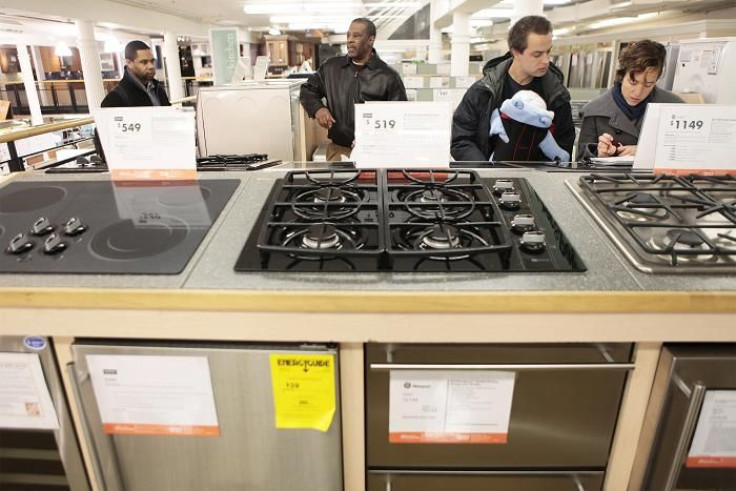Confidence In US Economic Growth Falls, Across The Board

Since the U.S. recession's start at the end of 2007, consumers have been struggling to shake off a glum mood. Recently, it appeared they might have snapped out of their despair, especially given last month's University of Michigan measure of consumer confidence hitting a five-year high.
But many economists were concerned that the gains didn’t look justified or sustainable.
“However you slice and dice it, the rise in consumer confidence in the months to November is hard to explain,” writes Paul Dales, senior U.S. economist at Capital Economics. “It may be possible that the rise in actual confidence is simply not justified and instead is due to statistical noise that will be reversed in due course.”
Now, it turns out their doubts were justified, which is hardly surprising given all that consumers have to worry about. At a time when equity prices are flat-lining, gasoline prices remain high, earnings growth is slowing and there has been no major improvement in jobs growth, it’s hard to remain upbeat. The looming fiscal cliff, which could trigger a plunge in after-tax incomes within days, has also been weighing on sentiment.
U.S. economic confidence continues its postelection fade, according to Gallup, whose index fell to -16 for the week ended Dec. 9, from -12 previously. By Gallup’s measure, confidence is now the lowest it has been since the presidential election, but still high compared with most of 2012.
In addition, small-business owners, it seems, have little faith in Washington and are particularly upset at the results of the election, which caused them to expect the next six months to be very rough financially, the National Federation of Independent Business said Tuesday.
The small-business optimism index plummeted 5.6 points to 87.5 last month, the weakest reading since March 2010. November’s drop was one of the largest on record and is the largest single-month drop dating back to 1987.
The NFIB blamed the Nov. 6 election, in which President Barack Obama won a second term, for the sharp erosion in confidence, with Superstorm Sandy, which battered the East Coast in late October, playing a limited role.
“Something bad happened in November -- and based on the NFIB survey data, it wasn’t merely Hurricane Sandy,” said NFIB Chief Economist Bill Dunkelberg in a statement. “Washington does not have the needs of small business in mind. Between the looming fiscal cliff, the promise of higher health-care costs and the endless onslaught of new regulations, owners have found themselves in a state of pessimism.”
The net percentage of respondents expecting the economy to improve in six months declined from 2 percent in October to -35 percent in November, which is the largest monthly decline in this component index in the history of the survey by a wide margin. This drop alone was responsible for over 60 percent of the change in the index.
Small-business owners’ pessimism jibes with the sharp drop in the University of Michigan’s survey of consumer sentiment, which plunged to 74.5 in the preliminary December report released last Friday, after a print of 82.7 in the final November reading.
As the deadline to resolve the fiscal cliff draws closer with no resolution in sight, households are concerned about a potentially sharp fall in their after-tax incomes.
Consumers' mood is seen as a predictor of their spending, which accounts for two-thirds of the U.S. economy
“More generally, if confidence is going to rise back to prerecession levels, the S&P 500 will need to rise to 1,600, jobs growth will need to strengthen further, gasoline prices would need to fall to around $3 a gallon and annual earnings growth will need to rebound from below 2 percent to 3 percent,” Dales said.
© Copyright IBTimes 2024. All rights reserved.












